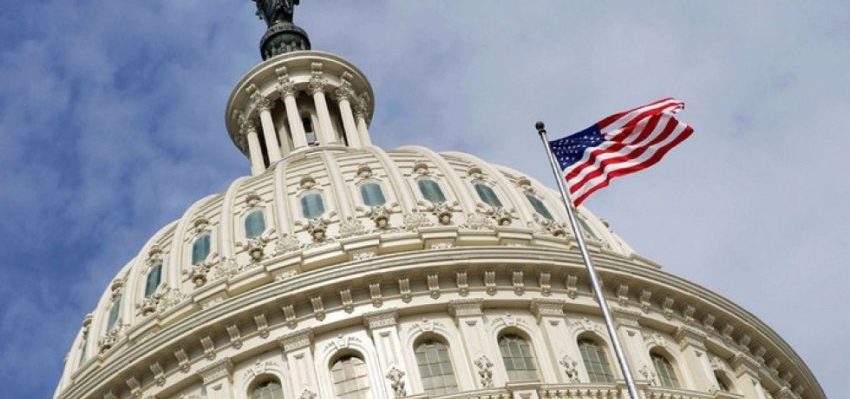 Members of congress will no longer get a sweet deduction on “living expenses” under the Republican-led Tax Cuts and Jobs Act. #wiright #wipolitics Click To Tweet
Members of congress will no longer get a sweet deduction on “living expenses” under the Republican-led Tax Cuts and Jobs Act. #wiright #wipolitics Click To Tweet
MacIver News Service | March 26, 2018
By M.D. Kittle
MADISON, Wis. – Members of congress will no longer get a sweet deduction on “living expenses” under the Republican-led Tax Cuts and Jobs Act.
Kooyenga credits Speaker Ryan and other key congressional Republicans who insisted that the days of special treatment for congress – at least on the deduction front – come to an end.
But before you shed too many tears for John Q. Congressman or Congresswoman, know that senators and representatives are entitled to all kinds of benefits that the average John Q. Citizen can only dream of.
The first major reform of the U.S. tax code in 30 years comes with the elimination of a provision that allowed members of congress to deduct up to $3,000 on living expenses incurred while doing the “people’s business” in Washington, D.C.
“That would be like you deducting your home and living expenses to work at your job,” said state Rep. Dale Kooyenga (R-Brookfield).
A tax conformity measure, authored by Kooyenga and state Sen. Howard Marklein (R-Spring Green), would mostly bring Wisconsin’s tax code in line with the changes at the federal level. That means the 10 members of Wisconsin’s congressional delegation can no longer deduct D.C. living expenses on their state tax forms, either.
Kooyenga credits Speaker of the House Paul Ryan (R-Janesville) and other key congressional Republicans who insisted that the days of special treatment for congress – at least on the deduction front – come to an end.
“He should be applauded for that,” Kooyenga said of Ryan. “Nobody has reported that.”
U.S. Sen. Joni Ernst (R-Iowa), a champion of the change, pushed a separate bill late last year aimed at killing the deduction.
The Stop Questionable, Unnecessary, and Excessive Allowances for Legislators Act, or the SQUEAL Act, was rolled out to “cut perks for elected officials and make Washington squeal,” Ernst wrote in a press release.
“To achieve the ultimate goal of lowering tax rates for hardworking families and businesses, Congress is going to have to eliminate various loopholes and deductions in our outdated tax code. Congress should lead by example and offer up its own unnecessary tax break,” Ernst added.
The total deduction amount is a drop in the proverbial bucket of the massive federal government budget, amounting to about $500,000 worth of aggregate tax savings per year for members of congress, according to Jared Walczak, senior policy analyst for the Tax Foundation. But it’s the thought that counts.
And fiscal hawks for years have been thinking of ways to eliminate or at least trim benefits that the bosses of congressional members – average taxpayers – don’t get.
The battle goes back to 1982, when an “urgent” supplemental bill limited to $3,000 a year business-related tax deductions that could be claimed by members of congress for D.C. living expenses, according to CQ Almanac.
“A more generous tax deduction had been approved on the last day of the session in 1981,” a measure aimed at enabling members to “deduct from their income taxes more of the expenses they incurred while in Washington,” the publication notes.
These more generous provisions, approved in January 1982, allowed members to deduct $75 per day for each “congressional day” in a given year, according to the U.S. Treasury Department. They could do so without having to substantiate expenses with receipts or even be in Washington on those days.
The new regulations provided a deduction of at least $19,200 for senators and $19,650 for House members. The numbers were different for the two chambers because the House met more days in 1981, CQ Almanac notes.
“The more generous tax rules provoked a raft of unfavorable publicity for members of Congress as taxpayers flooded Capitol Hill and the Internal Revenue Service (IRS) with angry letters and phone calls protesting the members’ tax treatment,” the publication states.
A campaign by taxpayer champions like Wisconsin’s Sen. William Proxmire ultimately killed the hefty deductions. But the Democrat, famous for his tongue-in-cheek “Golden Fleece” awards exposing the government’s squandering of public money, authored an amendment that ultimately restored the $3,000 deduction cap.
Some members of congress have complained the deduction isn’t enough for lawmakers living in one of the most expensive cities in the nation.
Former U.S. Rep. Jason Chaffetz (R-Utah) told the Hill last year that a $2,500 monthly housing allowance “would be appropriate and a real help to have at least a decent quality of life in Washington if you’re going to expect to spend hundreds of nights a year here.”
In short, to hell with $3,000 in annual deductions. Chaffetz says $30,000 more per year in living expenses is the way to go. The congressman’s ultimate argument, it seems, is that …”[Y]ou shouldn’t have to be among the wealthiest of Americans to serve properly in Congress.”
But the congressional salary – and the suite of benefits that comes with the job – puts representatives and senators at least in a doing-a-far-sight-better-than-many-other-Americans class.
Besides the $174,000 annual salary for rank and file members, congressional membership comes with truly platinum health and pension benefits, largely subsidized air travel, and one sweet gym.
Chaffetz shouldn’t expect much sympathy from the speaker, by the way. Paul Ryan has been known to sleep in his D.C. office.
“I live in Janesville, Wis.,” Ryan told CNN in 2015. “I commute back and forth every week. I just work here. I don’t live here. I get up very early in the morning. I work out. I work until about 11:30 at night. I go to bed, and I do the same thing the next day.”